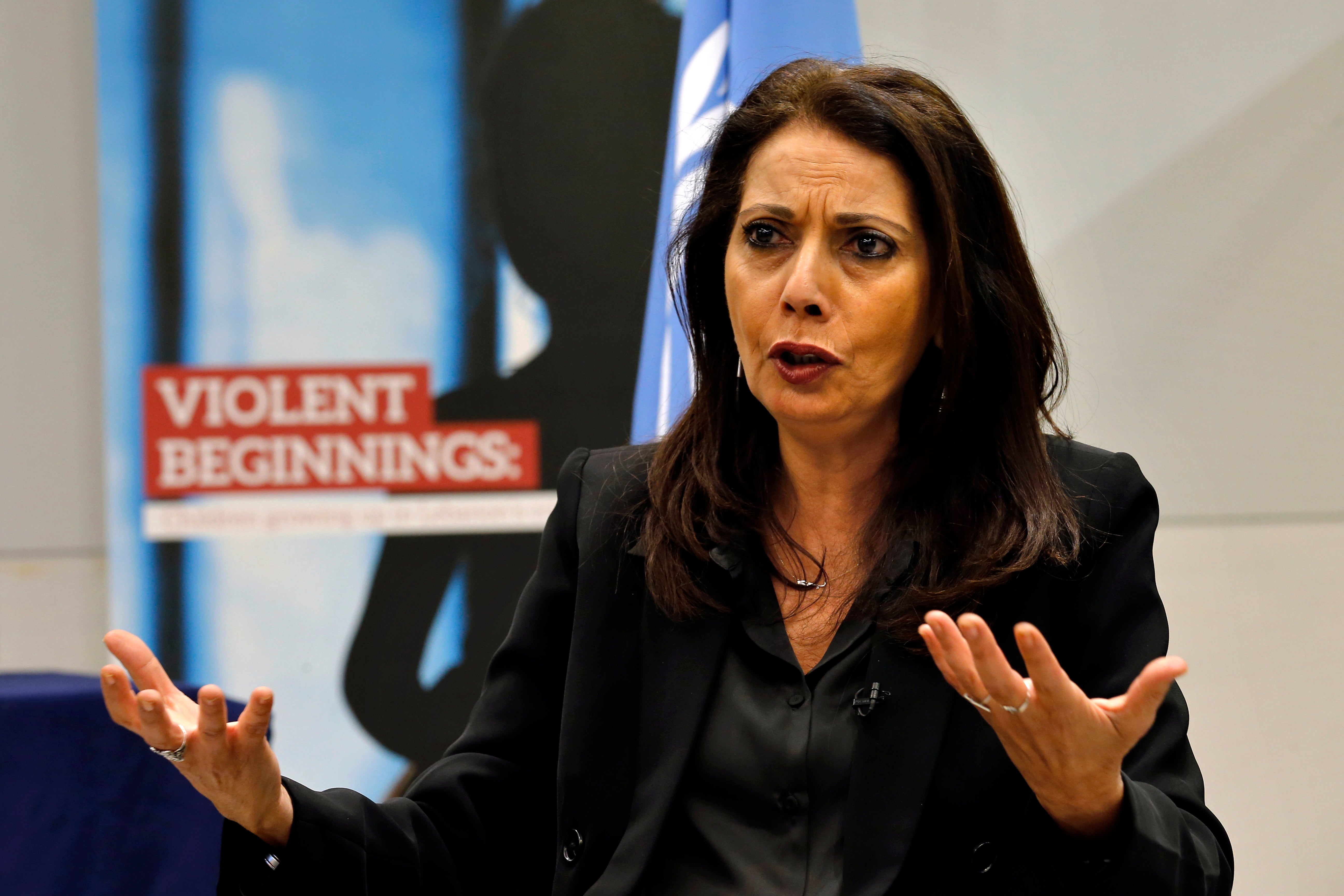UN: Lebanese crisis exposes children to abuse, exploitation
The U.N. children's agency says the number of cases of child abuse and exploitation it has handled in Lebanon has nearly doubled in the past year amid the Mideast country’s economic meltdown

Your support helps us to tell the story
From reproductive rights to climate change to Big Tech, The Independent is on the ground when the story is developing. Whether it's investigating the financials of Elon Musk's pro-Trump PAC or producing our latest documentary, 'The A Word', which shines a light on the American women fighting for reproductive rights, we know how important it is to parse out the facts from the messaging.
At such a critical moment in US history, we need reporters on the ground. Your donation allows us to keep sending journalists to speak to both sides of the story.
The Independent is trusted by Americans across the entire political spectrum. And unlike many other quality news outlets, we choose not to lock Americans out of our reporting and analysis with paywalls. We believe quality journalism should be available to everyone, paid for by those who can afford it.
Your support makes all the difference.The U.N. children’s agency said Friday the number of cases of child abuse and exploitation it has handled in Lebanon has nearly doubled in the past year amid the Mideast country’s economic meltdown.
Lebanese are under enormous pressure as their country struggles with an unprecedented economic crisis, the worst in its history, with inflation and unemployment soaring and more than 80% percent of its population plunged into poverty.
That has pushed parents to send their children to work and force their daughters into early marriage. Babies are increasingly being abandoned on the streets.
“I think it is not acceptable and it is preventable, and I think we can’t really use the excuse for political and financial crisis to justify this violation of rights,” said Najat Maala M’jid, the U.N. special representative on violence against children, who is currently visiting Lebanon.
“Despite ... the financial crisis, this is not to be seen as additional expenses but as an investment, and no, not (one for) tomorrow because the children are the present," she told The Associated Press.
M'jid urged for laws to be reviewed to ensure protection, such as penalizing child marriage, and for social welfare to be extended to children and institutionalized.
“We all know what to do. So, the question is why we are not doing it,” she said, adding that she is meeting with Lebanese officials to press the urgency of the matter.
UNICEF estimates that one in every eight families in Lebanon send their children to work. Figures by UNICEF and national agencies show that 4% of Lebanese girls between the ages of 15 and 19 are married.
The situation is even more dire for the Syrian refugee communities living in Lebanon, estimated to be over 16% of Lebanon’s population of 6 million.
The number of Syrian refugee children who are working doubled between 2019 and 2021 to about 28,000, mostly boys, exposing them to abuse, exploitation and harsh working conditions. One in five Syrian girls between the ages of 15-19 in Lebanon is married.
These numbers are likely an underestimation of the growing phenomenon, according to UNICEF.
The number of cases of child abuse and exploitation handled by UNICEF and its partners increased from 3,913 to 5,621 between October 2020 and October 2021.
Meanwhile, over 1.8 million children — up from 900,000 in 2019 — live in what is termed multidimensional poverty, which includes lack of access to basic services. Many have dropped out of school and others are increasingly living on the streets.
“This is an unprecedented crisis for children,” said UNICEF’s representative in Lebanon, Yukie Mokuo, urging action. “Otherwise, we will lose the generation. We will lose the future of Lebanon.”